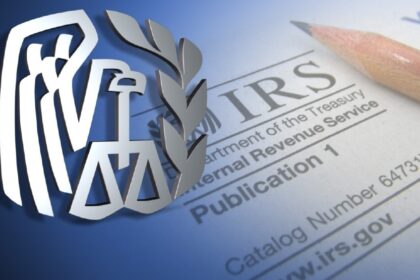Medical identity theft is the unauthorized use of an individual’s personal information, such as name, social security number, or insurance policy number, to fraudulently obtain medical services, prescriptions, or medical devices. It can also involve the falsification of medical records or billing for services not rendered.
Types of Medical Identity Theft
- Fraudulent Billing: The theft involves submitting false claims to insurance companies or government programs for reimbursement. Fraudulent billing, also known as healthcare billing fraud, occurs when a healthcare provider or organization intentionally bills for services or procedures that were not provided, or bills for a higher level of service than was actually provided. This type of fraud can be committed by healthcare providers, such as doctors, hospitals, and clinics, as well as by individuals who submit false claims to insurance companies.
- Prescription Fraud: The theft involves obtaining prescription medications using someone else’s identity and insurance information. There are several different forms of prescription fraud, including: Forging prescriptions, Doctor shopping, Altering prescriptions, Stealing prescriptions, Online prescription fraud.
- Medical Services Fraud: The theft involves receiving medical treatments, surgeries, or devices under someone else’s identity and insurance coverage. Medical services fraud is a type of healthcare fraud that involves the intentional misrepresentation or deception related to medical services or procedures. This can include a wide range of activities, such as billing for services that were not provided, providing unnecessary medical services, or charging for services at a higher rate than the actual cost of providing the service.
- Health Insurance Fraud: The theft involves using someone else’s insurance coverage to obtain health insurance benefits. This can include a wide range of activities, such as submitting false claims, billing for services not provided, or charging for services at a higher rate than the actual cost of providing the service.
Q&A about Medical Identity Theft
- What are the consequences of medical identity theft?
Consequences include financial losses, damage to credit, incorrect information in medical records, and denial of insurance claims or coverage.
- How can I tell if I am a victim of medical identity theft?
Warning signs include receiving bills for services you didn’t receive, being contacted by debt collectors for unpaid medical bills, and finding inaccurate information in your medical records or insurance Explanation of Benefits (EOB) statements.
- What should I do if I suspect medical identity theft?
Report the issue to your healthcare provider, insurance company, and local police. You should also place a fraud alert on your credit report and monitor it regularly.
- How can I prevent medical identity theft?
Protect your personal information by not sharing it unnecessarily, using strong passwords for online accounts, and being cautious of phishing emails or phone calls.
- What are the legal implications of medical identity theft?
Medical identity theft is a crime and can result in criminal charges, fines, and imprisonment for the perpetrator.
- How does medical identity theft affect my health?
Medical identity theft can lead to incorrect medical records, which can cause misdiagnoses, improper treatments, and potentially life-threatening situations.
- Can medical identity theft impact my credit score?
Yes, unpaid medical bills can be reported to credit bureaus and damage your credit score.
- How can I correct my medical records after medical identity theft?
Work with your healthcare provider and insurer to review your records, identify inaccuracies, and request corrections.
- How can I protect my child from medical identity theft?
Monitor your child’s personal information and educate them on the importance of safeguarding their information and being cautious of online scams and phishing attempts.
- How long does it take to resolve a medical identity theft case?
Resolution time varies depending on the complexity of the case, the cooperation of involved parties, and the resources available to investigate and correct the issue.
What Are Some Common Signs Of Medical Identity Theft?
There are several common signs of medical identity theft that individuals should be aware of. These include:
- Unfamiliar medical bills: If you receive medical bills for services that you did not receive or that you do not recognize, this could be a sign of medical identity theft.
- Explanation of Benefits (EOB) statements for services you did not receive: If you receive EOB statements from your insurance company for medical services that you did not receive, this could be a sign that someone is using your medical identity.
- Medical collection notices: If you receive collection notices for medical services that you did not receive or that you do not recognize, this could be a sign of medical identity theft.
- Errors in your medical records: If you notice inaccuracies in your medical records, such as diagnoses or treatments that you did not receive, this could be a sign of medical identity theft.
- Receiving calls or bills from debt collectors: If you receive calls or bills from debt collectors for medical services that you did not receive or that you do not recognize, this could be a sign of medical identity theft.
- Denied insurance claims: If your insurance claims are denied because you have reached the maximum benefit amount or because you have received services that you did not actually receive, this could be a sign of medical identity theft.
- Medical records or billing statements that are not sent to you: If you do not receive medical records or billing statements that you should have received, this could be a sign that someone has changed the mailing address on your medical accounts.
If you suspect that you are a victim of medical identity theft, it is important to report it to your healthcare provider, insurance company, and/or the appropriate authorities as soon as possible.
Preventing Medical Identity Theft
- Safeguard your personal information: Don’t share your personal information, such as social security numbers or insurance policy numbers, unless absolutely necessary.
- Monitor your medical records: Regularly review your medical records and insurance EOB statements for accuracy to spot any suspicious activity.
- Use strong passwords: Create strong, unique passwords for your online accounts and consider using multi-factor authentication.
- Be wary of phishing attempts: Don’t click on suspicious links or provide personal information over the phone or email to unknown parties.
- Shred sensitive documents: Dispose of sensitive documents, such as insurance forms and medical bills, by shredding them before discarding.
- Monitor your credit report: Regularly check your credit report for signs of fraud and place a fraud alert if necessary.
- Secure your devices: Keep your computers, smartphones, and other devices updated with the latest security patches and use antivirus software.
- Educate your family: Teach your family members about the risks of medical identity theft and how to protect their personal information.
- Report lost or stolen identification: If your driver’s license, insurance card, or other identification is lost or stolen, report it immediately to the appropriate authorities.
- Act quickly if you suspect medical identity theft: If you suspect you are a victim, report it to your healthcare provider, insurance company, and local police as soon as possible.
Report Medical Identity Theft
If you suspect that you are a victim of medical identity theft, there are several organizations and agencies that you can contact to report the crime:
- Your healthcare provider: Contact your healthcare provider as soon as possible and inform them of the suspected medical identity theft. They may be able to help you review your medical records and identify any fraudulent activity.
- Your insurance company: Contact your insurance company and inform them of the suspected medical identity theft. They may be able to help you review your claims and identify any fraudulent activity.
- Federal Trade Commission (FTC): You can file a complaint with the FTC by visiting their website or calling their toll-free hotline at 1-877-FTC-HELP (1-877-382-4357). The FTC can help you create an Identity Theft Report, which can be used to dispute fraudulent charges and protect your credit.
- Local law enforcement: Contact your local law enforcement agency and file a police report. This can help you document the crime and may be necessary for disputing fraudulent charges.
- Office of Inspector General (OIG): You can report suspected medical identity theft to the OIG by visiting their website or calling their hotline at 1-800-HHS-TIPS (1-800-447-8477). The OIG investigates fraud and abuse in federal healthcare programs, such as Medicare and Medicaid.
Reporting medical identity theft as soon as possible is important to limit potential harm to your health and finances, and to help prevent future incidents of fraud.













